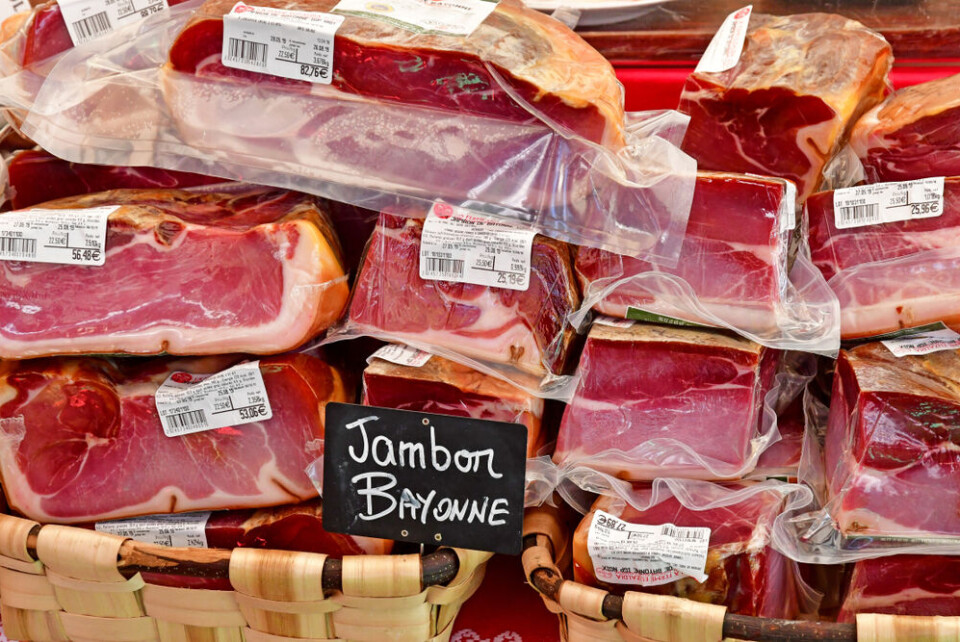-
How France’s new food strategy aims to change the national diet
The plan outlines new goals for meat consumption
-
Rugby vocabulary to know if watching the Six Nations in France
From un tampon to une cathédrale, understand the meaning of key French rugby terms
-
Best value 2026 Michelin French restaurants: Are there any near you?
Four regions did especially well on this year’s Bib Gourmand restaurant list
French food notes: The salty tale behind Jambon de Bayonne
In our series providing a sideways glance at French food, we take a look at a rather strange origin of one of France’s meat delicacies

For today’s delve into the somewhat fuzzy and fortuitous origins of some of France’s best-loved foods, we revisit that old recurring chestnut: the myth that sticks because it appeals to the consumer’s – or, perhaps more importantly, the marketeer’s – instincts.
In a country awash with charcuterie of all shapes, sizes, origins and quality, Jambon de Bayonne ranks as one of France’s reigning porcine delights (though it must be said it faces very stiff competition from the majestic AOC range of items with the porc noir de Bigorre label).
The rules for the production of this melt-in-the-mouth ham from the Pays d’Adour – covered by a “Protected Geographical Indication” (PGI) since 1998 – are predictably strict, with even the origin of the salt used to cure it being strictly controlled.The correct selection of pig breeds and a minimum of seven months maturing are among the other prerequisites.
As for its origins: the story goes that, during a wild boar hunt, Gaston Phoebus (sometimes spelled Fébus, also known as the eleventh count of Foix, b.1331, d.1391) wounded a specimen from a fleeing herd. The animal escaped but was eventually – some months later, legend has it – discovered drowned and in a perfect state of preservation in a salt spring in Salies de Béarn. An unlikely yet not impossible yarn, since the Adour basin’s waters are proven to be mineral-rich.
There is also evidence, however, that way, way back in the year X a Roman general mentioned a flourishing trade of ham between Bordeaux and Bayonne.
However the jambon came about, it’s to Bayonne’s annual foire au jambon – held since 1462! – that true aficionados head.
Related articles
French food notes: Traditional Dijon dish was created by twist of fate
























